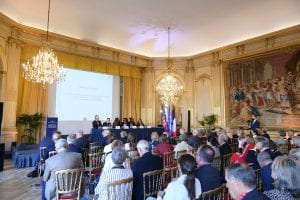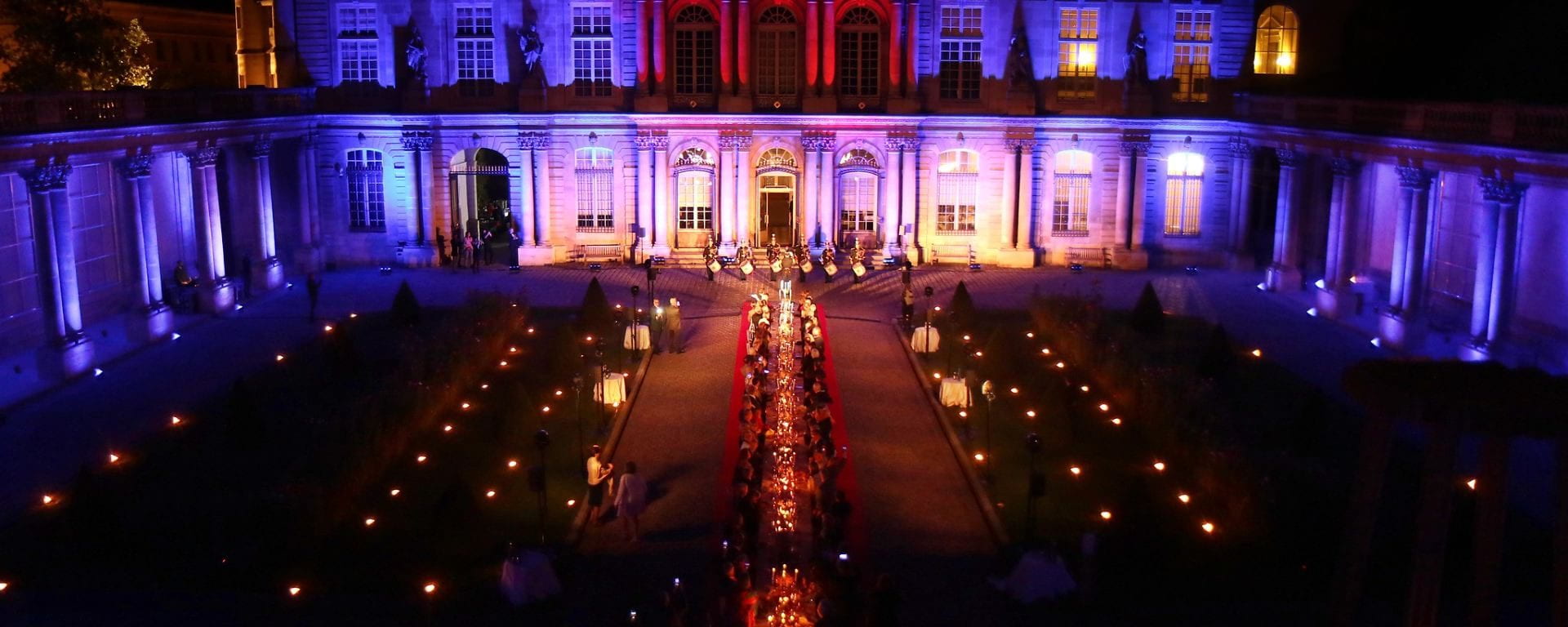The histories of France and the United States are closely intertwined, to say the least. Since 1778, the very existence of the two nations has more than once hinged on the willingness of one nation to come to the aid of the other. But the histories of the two nations have been more interconnected than the historiographies – the way historians have written about those histories. Scholars in both countries have, of course, never stopped writing about the other—and, in particular, about the pair of eighteenth-century revolutions that did so much to shape the modern world. But are historians working on one side of the Atlantic fully up to speed with the work being done on the other?
The Winter 2024 issue of Early American Studies is our attempt to provide scholars an opportunity to catch a glimpse of the kinds of questions being asked about the American revolutionary era by scholars based in France. There is a lot here. Diplomatic and military history can be found alongside essays devoted to the currents of political thought and culture and explorations of race and colonialism. All of the articles straddle both the secondary literature and the archival holdings of the two countries. Two essays, under the heading of “Consider the Source,” are devoted to the potential for French archives to transform the work of scholars writing about eighteenth-century America.
This special issue had its origins in an international conference organized by George Washington’s Mount Vernon in September 2019, when what’s now known as the George Washington Presidential Library collaborated with the Université Paris 8 to bring the scholars included in this special issue (alongside many others) together for three days of conversation. The location mattered. Holding the conference in Paris was a way to emphasize the global nature of the American Revolution. Decisions made in France changed the course of the war, and negotiations there ended it.

Locations within Paris were also chosen with an eye to history. Joined by a few dozen supporters of Mount Vernon, as well as members of the Mount Vernon Ladies’ Association (since the 1850s, the owners and stewards of George Washington’s home), the historians at the conference gathered at such places as the Archives Nationale and the Monnaie de Paris. Scholars accustomed to conferences held in cramped hotel meeting rooms were in for a treat.
One day of conference panels took place at the Cercle de l’Union Interalliée, an institution founded in 1917 as a place to welcome officers and statesmen of the allied nations. There, too, the historical significance of the place provided a valuable perspective for scholars discussing how ideas and cultural practices no less than soldiers and materiel flowed between France and the young United States.

As the United States approaches its semi-quincentennial, we know there will be more gatherings of this sort, with scholars and public history sites helping Americans to explore the broader significance of their independence and the history that followed. And that effort will be an international one. The America 2026 project in France is currently organizing workshops and conferences in Europe and in the United States to help to further the kinds of work found in this special issue of Early American Studies.
In this roundtable, some of the authors whose research is included in the special issue of EAS highlight what they think a French scholarly perspective on the American Revolution can add to our understanding of the event. They tell us what new insights they think scholars and students of the American Revolution gain by seeing it through French eyes.
Bertrand Van Ruymbeke is professor of American history and civilization at Université Paris 8 and author of From New Babylon to Eden: The Huguenots and Their Migration to Colonial South Carolina (2006), L’Amérique avant les Etats-Unis. Une histoire de l’Amérique anglaise 1497-1776 (2013), and Histoire des Etats-Unis. De Colomb à nos jours (2 vols. 2021). He co-edited, with Carine Lounissi, a special issue of the Revue Française des Etudes Américaines (RFEA) on the American Revolution and Europe (n.173, December 2022). He currently heads a European and transatlantic consortium on the American Revolution (AMERICA2026).
Kevin Butterfield is Director of the John W. Kluge Center at the Library of Congress. He previously served as the Executive Director of what’s now known as the George Washington Presidential Library in Mount Vernon, Virginia. He is the author of The Making of Tocqueville’s America: Law and Association in the Early United States.
Read Butterfield and Van Ruymbeke’s article “Understanding the American Revolution in Twenty-First Century France” in EAS’s Winter 2024 issue.
Links to French Perspectives’ Roundtable Posts:
French Scholars on the American Revolution: Bridging Horizons? – Emilie Mitran
Reading French Sources for a Better Understanding of the American Revolution – Leïla Tnaïnchi
Our Shared Legacy – Hugo Toudic & Céline Spector
The French-American Alliance through the Eyes of Chastellux and Vioménil – Iris de Rode



